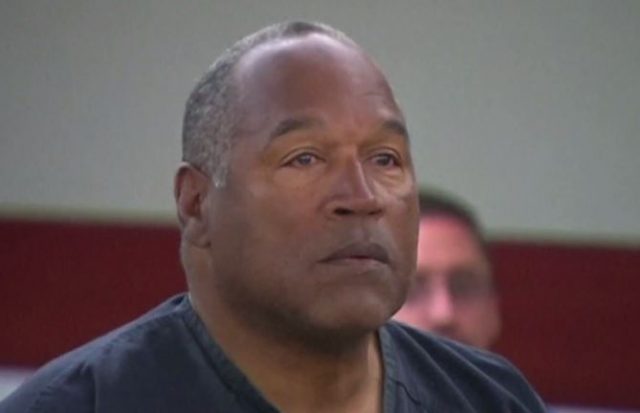 An unconfirmed report from The Daily Mail claims that O.J. Simpson was caught masturbating in his cell at a Nevada corrections facility as a female officer was walking by. The report also said that The Juice is facing a possible disciplinary charge for this, which could put his parole in jeopardy.
An unconfirmed report from The Daily Mail claims that O.J. Simpson was caught masturbating in his cell at a Nevada corrections facility as a female officer was walking by. The report also said that The Juice is facing a possible disciplinary charge for this, which could put his parole in jeopardy.
The report raised some serious questions. For starters, did this actually happen? A spokesperson from the Nevada Department of Corrections insisted that no one would have leaked such information, saying, “It is against NDOC policy to release inmate disciplinary history to the public. It is also against policy to release inaccurate information.”
Another question is, if O.J. did do this, is it even against the rules? It seems likely that this sort of thing would probably happen all the time. Indeed, the NDOC spokesperson said that just masturbating in a cell is not against the rules, but if it was viewed as sexual harassment (as in, if it was specifically done in another person’s presence), it could be a violation of Nevada Department of Corrections Administrative Regulation MJ30, which is classified as a “major violation.” MJ30 includes:
Sexually stimulating activities, including but not limited to caressing, kissing or fondling.
An updated version of MJ30, however, specifies that it only pertains to fellow inmates.
Another regulation, MJ50, covers sexual harassment, including behavior “that is sexually abusive or offensive to any person,” including gestures or actions, and “performing a sex act, with knowledge that it will be observed by another.” MJ50, however, which covers sexual harassment, could still apply.
Both MJ30 and MJ50 are Class A violations.
The rules say that inmates have three rights that they can use for their benefit after being charged with an offense. First, they are entitled to receive an official Notice of Charges at least 24 hours before a disciplinary hearing. Second, they can “call witnesses with substantive knowledge of issues and present documentary evidence” at the hearing, so long as this doesn’t compromise security or “correctional goals.” Lastly, inmates are entitled to a written statement from a Disciplinary Hearing Officer detailing evidence and reasons behind any disciplinary findings.
Note: This article has been updated.